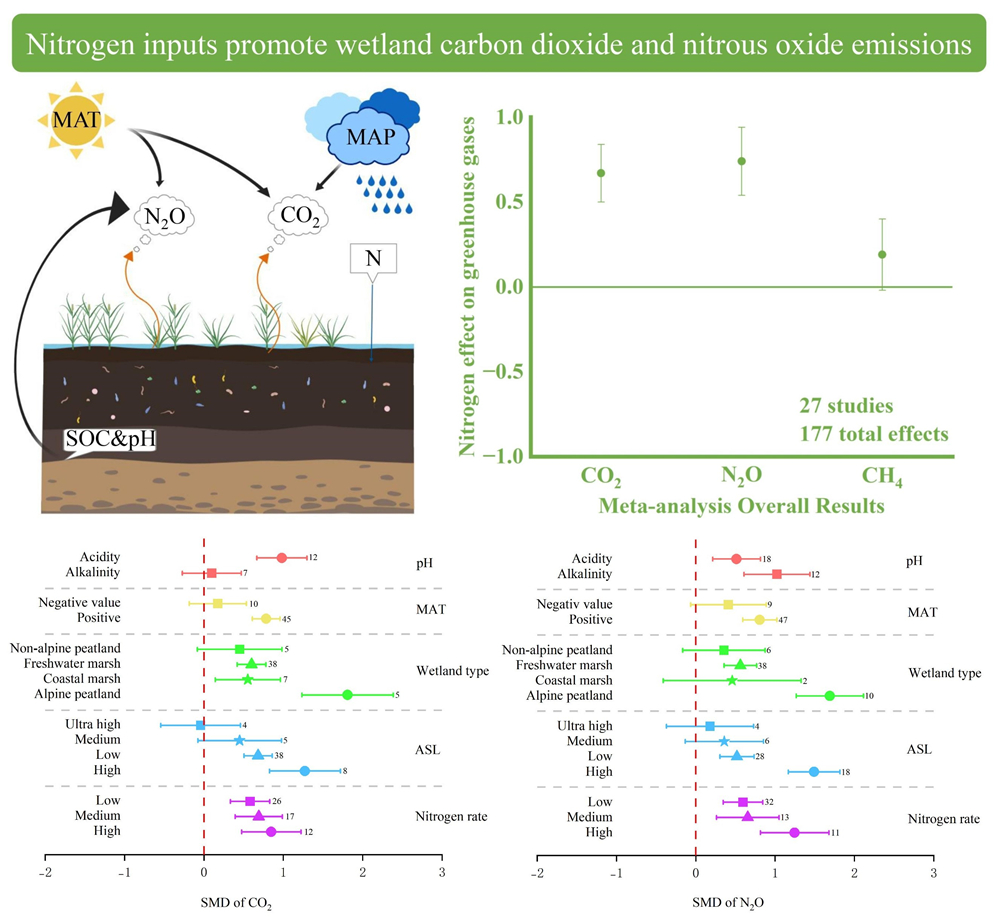Nitrogen (N) is the most limiting nutrient in wetland ecosystems. Changing in N nutrient status has a great effect on wetland carbon and nitrogen cycling. However, there is much uncertainty as to wetland greenhouse gas emissions response to N inputs in China.
Recently, researchers at the Northeast Institute of Geography and Agroecology, CAS used meta-analysis to investigate the response of wetland greenhouse gas emissions to nitrogen inputs and the factors that influence them.
This work was published in the journal of Environmental Science and Pollution Research on September, 2024.
The results of meta-analysis showed that N inputs significantly contributed to wetland carbon dioxide (CO2) and nitrous oxide (N2O) emissions within China, but had no significant effect on methane (CH4) emissions. After N input, high altitude and alpine peatlands could significantly promote wetland CO2 and N2O emissions. Mean annual temperature, pH, and N input rate all affected wetland greenhouse gas emissions to varying degrees of N input. Relative to other factors, changes in wetland type and above sea level had the greatest effect on wetland CO2 and N2O emissions following N input, which explain more of the heterogeneity. The results of this study have the potential to improve the ability to predict greenhouse gas emissions, which can contribute to wetland conservation and the achievement of carbon neutrality goals.
Keywords:
wetland; nitrogen deposition; greenhouse gas; meta-analysis; carbon emission

Fig. 1. Effect size of nitrogen inputs on wetland CO2, CH4, and N2O emissions.
Contact:
Song Yanyu
Northeast Institute of Geography and Agroecology, Chinese Academy of Sciences
E-mail: songyanyu@iga.ac.cn
Attachment:
Nitrogen inputs promote wetland carbon dioxide and nitrous oxide emissions in China: a meta‑analysis
https://doi.org/10.1007/s11356-024-34877-4